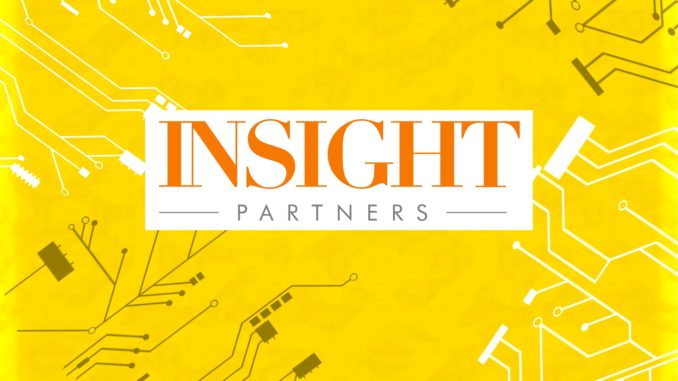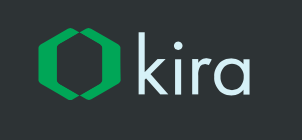
US-based investment fund, Insight Partners, has financial stakes in both Kira Systems and ContractPodAI – but what is driving its commitment to these companies and how does it see the legal tech market taking shape? Artificial Lawyer spoke to Vice President, Paul Szurek, to find out.
First, why is Insight, which has over $20 billion of assets under management and has invested in around 300 companies, now focused on legal tech, and especially these companies centred on legal data and contract analysis? After all, compared to many market segments, such as consumer electronics for example, legal tech is relatively small.
Szurek, who worked closely on the ContractPodAI deal, says that a key factor is lower adoption levels of cloud-based software tools among professional services, and in this case lawyers. And, investment funds want to find target markets where future growth looks likely. So, legal tech makes a lot of sense.

‘If you look at the opportunity to have an impact [in relation to cloud-based tools for lawyers] then it is huge,’ he says.
‘What we do is look for big opportunities and for category leaders that will change things,’ he adds.
Szurek notes that although ‘under-penetrated’ market segments can also mean higher difficulty levels in obtaining the desired growth, nevertheless the chance to build something here is worth the commitment.
Help Not Replace
But, how does he see things evolving for legal tech with AI capabilities? Szurek is firmly in the ‘enable not replace’ camp. He says he sees tech’s role as helping to ‘streamline, to automate and make things less risky’ for lawyers.
‘The bedrock is to strip out the time-consuming things. The value to lawyers is to let them do their jobs,’ he stresses – and amen to that.

Szurek explains that together the two companies cover off key areas of demand: ContractPodAI ‘sells into inhouse and legal ops teams’, while Kira ‘sells to law firms and addresses the time-based billing model to deliver more value’. ContractPodAI is also offering a more platform-style play, with CLM and document creation capabilities, as well as the review ability.

‘We have posed that kind of question to ourselves a couple of times, but we have to be careful about disrupting the trajectories of these companies. It’s also early. It perhaps makes sense, but maybe more of a partnership, but even that would be far, far down the road,’ he explains to Artificial Lawyer.
Fair enough, although the idea of these two coming together would be a tantalising prospect…..That said, he adds that they would like to see ContractPodAI expand its capabilities, and this may well mean acquiring some other legal tech companies that would become part of a larger, integrated platform.
Long Term View
Let’s focus again on the bigger picture. How does Insight Partners see the world of legal tech changing in the long term? Szurek says that the key issue is really bringing together a range of business needs that connect to legal data. And where is this legal data? It’s in the contracts.
In which case we are really just at the beginning of things, in relation to contract review and CLM tools. That may simply be where the first sight of the legal data takes place, but this then connects outward to tools that relate to everything from CRM and sales, to compliance monitoring and more.
Szurek notes that after talking to many companies they found that there was a ‘black box of risks’ that they had to deal with. Simply put, companies don’t know what’s going on with their commitments and potential exposure to a range of issues. They’re flying blind because they don’t really have visibility of their own contracts – even as the company churns out dozens of contracts per day – nor of the multiple interrelated business issues that connect to them.
The goal is not just to support great AI review tools and CLM platforms – that’s just the start. The wider goal is to create multi-functional, integrated platforms that may have contracts at their centre, but help provide data and business insights across the entire enterprise.
‘GCs address [this black box of risks] with Bandaids, but we believe they can employ a more end to end solution,’ Szurek concludes.
And what will this look like? Are we going to see massive consolidation? Interestingly, Szurek says: no.
He explains that there will be category leaders, especially around workflow and data insights, but because the end buyers of legal services are so fragmented and diverse, i.e. from an individual looking for help with a rental agreement, to a global bank needing compliance help, to the literally millions of smaller companies around the planet with a wide variety of needs – the demand base is just too varied to drive a super-consolidated market of just a handful of companies, as we see in some other areas.
One last thought: what of the future of the giants such as LexisNexis and ThomsonReuters? Szurek also has some intriguing ideas here. His key point is that a lot of legal data value comes from client work. That data is private, and is not like just having a huge data base of case law that you can charge people to access.
And if the value in the future is going to be increasingly in the client data, then those companies that help gain insights into that data are where the real growth will be.
Exciting times, and Insight Partners clearly has a vision of how things will change. How things turn out remains to be seen, but they have put their money on the table – and their commitment to legal tech is only just getting started.